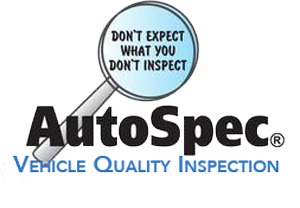Ten Questions to Ask Your Repair Shop
Finding a good shop is complicated and time consuming enough, but how do you make sure you’re getting quality service from the shop you’ve chosen?
If you keep these 10 questions in mind, you’ll be well on your way to understanding exactly what you’re getting from your service provider.
- How long have you been in business? If a repair shop has been around for a while, it’s a good indication that they may be on the more reputable side. It also means they are likely to have an established review history online, so check them out on ratings websites like Google, Yelp, and the Better Business Bureau.
- What car lines do you specialize in? With the sophistication of today’s automobiles, trying to repair each and every car line can be a daunting task. In our experience, garages that specialize in one or two different manufacturers seem to be a little more conversant and efficient.
- What are your qualifications? Ask about the shop’s affiliations with automotive repair organizations and active ASE certification for technicians. You should also figure out if there are any master certified or “A” technicians on staff who are qualified to diagnose and repair a problem without any assistance from other shop personnel.
- Who will be working on my vehicle? Some shops will have their “A” technician diagnose the customer’s concern and then assign the actual repair procedure to a less experienced team member. In most cases there is nothing wrong with this practice, but it becomes more important as the skill level needed to diagnose or complete a particular job increases. Remember, as a customer, you have the right to know who will be doing the repairs on your vehicle.
- What kind of parts do you use? Ask if they use factory or aftermarket parts, and inquire as to whether they give customers a choice. This can be tricky; aftermarket parts are usually less expensive, but they are often more limited in terms of reliability and warranty coverage.
- Is your repair facility well equipped? Figure out if they have all the tools that you would expect a modern repair facility to have. Do they use professional-level tools and diagnostic equipment?
- What is your labor rate? This is self-explanatory. Labor rates vary from shop to shop. The highest is not necessarily the best. Again, do your research.
- Are you willing to work with my extended warranty? If you own an extended warranty, make sure your shop is willing to work with the extended warranty company. This is important because warranty companies typically pay labor at a reduced rate and will sometimes provide the repair facility with used or re-manufactured parts. Your shop may not be willing to do that transmission job that normally pays 10 hours of labor for the seven hours the extended warranty company is offering.
- What labor guide do you use? A labor guide is what a repair facility uses to determine how much labor time it takes to complete a particular repair. These time guides do not factor in unforeseen issues, like seized or rusty fasteners, broken bolts, etc. Consumers need to know if the shop uses the manufacturer’s time guide or that of an aftermarket provider like Alldata, Mitchell, or Chilton’s, since these times will vary.
- Are your technicians required to take continuing education training classes? At the rate that technology is being integrated into today’s cars, additional training is vital. Repair facility owners, managers, and technicians who invest in periodic training demonstrate a solid level of commitment to their field.
It goes without saying that looking for an automotive maintenance and service provider that you’ll be comfortable with can be a daunting task. Hopefully, these suggestions will make it a little easier to ensure your service and repair provider meets your needs.
